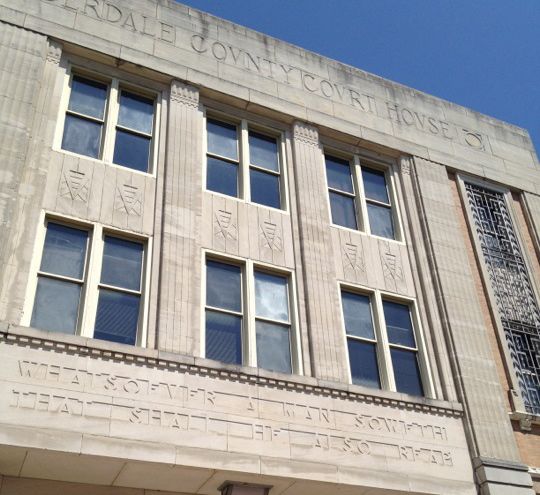 Meridian, Miss., is running a “school-to-prison pipeline,” using the city police as a “taxi service,” the federal Department of Justice charges. Department officials say the city is arresting children for school discipline infractions then denying them due process.
Meridian, Miss., is running a “school-to-prison pipeline,” using the city police as a “taxi service,” the federal Department of Justice charges. Department officials say the city is arresting children for school discipline infractions then denying them due process.
“Based on the serious and longstanding nature of the violations, as well as … refusal to cooperate with our investigation and provide reasonable access to information,” the Civil Rights Division of the U.S. DOJ thinks a federal lawsuit is necessary to “vindicate” the rights of children in the city of Meridian and Lauderdale County.
The DOJ made the announcement in an Aug. 10 open letter to Mississippi officials outlining the findings of an eight-month federal investigation.
If the Missippians do not enter “meaningful negotiations” the DOJ will file a federal court complaint by mid-October against the City of Meridian, the County of Lauderdale, Lauderdale County Youth Court, Youth Court Judges Frank Coleman and Veldore Young, the state of Mississippi, the Mississippi Department of Human Services and the Mississippi Division of Youth Services.
Representatives of the City of Meridian, Lauderdale County and Lauderdale County courts who are authorized to talk to the media could not immediately be reached.
A DHS spokeswoman said her agency had no comment and had referred the matter to counsel at the state attorney general’s office.
The DOJ’s letter says “by policy and practice, MPD [Meridian Police Department] automatically arrests all students referred to MPD by the [school] District” without probable cause. There in the system, due process is “illusory and inadequate,” subject to delays, disproportionate and severe punishments and poor, if any, legal representation. They are brought in on complaints as minor as “defiance.” African-American children and children who have disabilities are the most severely affected.
That sounds exactly true to Jody Owens, Mississippi managing attorney of the Southern Poverty Law Center. His organization sued Lauderdale County in 2009 over conditions at their juvenile detention center, which a grand jury had once compared to a kennel.
“Kids are pushed into the system,” Owens explained. Detention, he said, is serving as the punishment for the sort of rule-breaking that should be taken care of at the school level.
“This is a very common thing that we think happens throughout the Deep South,” said Owens, and in Lauderdale County, the DOJ “legitimizes and confirms what we have known.”
Roscoe Jones had a white teacher for the first time in his life in 1964 when he attended a Mississippi Freedom School, a summer course on creating social change. He’s now restoring the city’s Council of Federated Organizations building, where as a teenager he worked at the office that housed the NAACP, the Southern Christian Leadership Conference, the Congress of Racial Equality and the Student Nonviolent Coordinating Committee.
When schools were integrated, “we were absorbed, not made equal,” said Jones. “There was no provision to make us a part of the system and that’s still going on.”
Meridian’s five-member school board is appointed by the mayor and confirmed by city council, rather than being an elected office. The student population is nearly 86 percent African-American, according to 2011 official figures. Jones said there are relatively few black teachers and Meridian is going on two generations of African-American students in a “system where they are ‘less than’” others.
Jones said the city needs “an ad hoc independent committee of citizens who have a vested interest — and who are not hand-picked [by the city] — to go in and give an independent evaluation of the problems.”
Indeed, the county’s 2010 settlement with the SPLC demanded Lauderdale establish a Juvenile Justice Advisory Board. Sheriff William Sollie has publicly prodded the Board of Supervisors to comply. Sollie said he is “still prodding.”
Jones said that board needs to be formed immediately.
The SPLC settlement also required Lauderdale to consider other ways to house juvenile defendants.
The Lauderdale County Sheriff’s Office took over day-to-day supervision of juveniles in October 2011. Since Jan. 1, 2012, the youth have been housed by contract roughly 70 miles away in Rankin County, which has a newer detention center.
The just-vacated juvenile detention center was investigated in 2002 by a grand jury. They reported it stinking of urine, covered with mold, cells spattered with feces and suited more to animals than humans.
